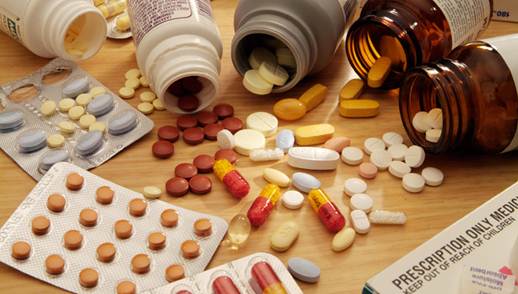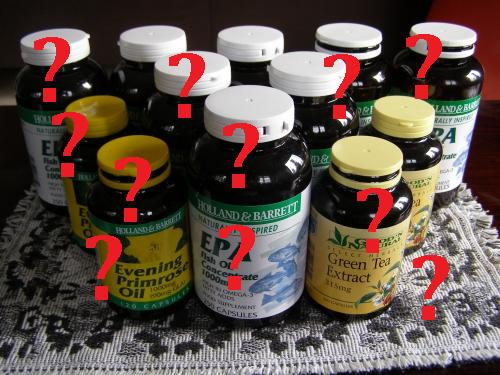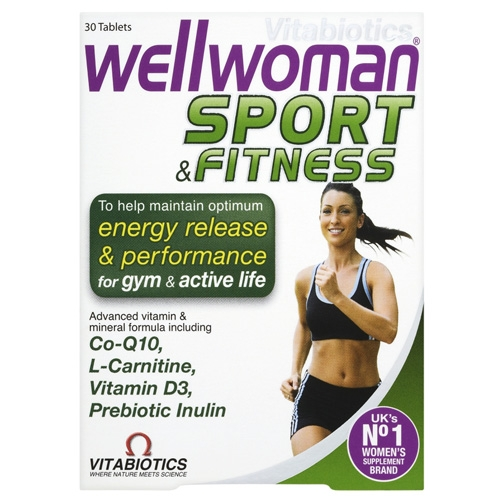Stop! Before you spend your hard-earned cash
on the latest health supplements, read our expert Q&As
Pop into any pharmacy healthfood shop or
supermarket and you’ll see shelves heaving with pills and potions designed to
boost your health. If you took them all you’d not
only be broke, you’d rattle! So which to choose and how to take them for
maximum benefit? We put your questions to nutrition experts to find out the
best way to use supplements.

Take
your supplements with food to maximize nutrient absorption
Can I overdose on supplement?
“Some people worry that if they take a
single-dose nutrient alongside a multinutrient formal they’ll take too much,”
says nutritionist Rob Clark. “But it’s highly unlikely. For a start, most
formulas adhere to the recommended daily amounts (RDAs) which are the minimum
needed to prevent deficiency, rather than the safe upper limit. Unless they
contain particularly high doses, it’s highly unlikely you’d exceed this even by
combining supplements.
“Water-soluble vitamins, such as B and C,
can’t be stored in the body, so any excess you consume will simply be flushed
out. Pregnant women should avoid supplements containing vitamin A (stick to a
pregnancy-specific formula) and anyone with blood-clothing issues (such as
those on Warfarin or about to go into hospital for an operation) should avoid
vitamin E as it thins the blood.”
If in doubt, check the safe upper limit of
a nutrient (go to hsis.org) and compare it to your product labels. If you
experience any unwanted symptoms while taking supplements, get them checked out
by your health practitioner.
I found a packet of supplement at the
back of my cupboard but they’re past their sell-by date. Should I take them?
“Liquid supplements are best thrown out as
they may have a bacterial overgrowth,” says Clark. “An out-of-date tablet or
capsule is unlikely to do you damage but its potency may well have diminished,
so you might not reap many benefits”
What’s the best time of day to take my
supplements?

“Whenever you’re most likely to remember!”
says independent nutritionist Ian Marber (ianmarber.com). I’ve never read any
convincing evidence that nutrients are better used by the body at different
times of day. And for some people, it’s hard enough to remember to take them in
the first place, let alone taking one with breakfast, another with lunch and
more in the evening.
“That said,” he continues, “it makes sense
if you’re taking something stimulating – such as a sports supplement containing
green tea, say – you shouldn’t take it before bed. Likewise, a relaxant such as
rhodiola or valerian, is one for you besides table”
Bone resorption (when bones break down
minerals into the blood stream) peaks at night, so, according to experts at the
Royal Adelaide Hospital, Australia, taking calcium before bed and first thing
in the morning can be beneficial for those women at risk of osteoporosis.
Should I take them on an empty
stomach or with food?
“Take them with food, because eating
improves blood flow to your digestive systems, and will maximize nutrient
absorption,” says Clark. “Unless the supplement is made from a food source –
such as a blue-green algae or wheatgrass – in which case it’s fine on its own.”
“Some supplements, such as zinc, can make
you feel a little nauseous if they land in an empty stomach,” adds Marber. “The
fat-soluble vitamins (A, D, E, K) and essential fatty acids are best absorbed
if there’s fat in the diet at the same time so, again, taking them at mealtimes
is best.”
Probiotics are best on a full stomach as
their chance of surviving is better when the pH level of the stomach is less
acidic.
Are there any foods pr drinks that
work best?
“Most people need some liquid to swallow
tablets and capsules,” says Clark. “Having a drink of water at the same time
will help supplements disintegrate in the stomach so the nutrients can be
absorbed.”
“Coffee and tea reportedly interfere with
the absorption of iron,” says Marber. “But don’t worry too much – better to
down your multivit with a swig of tea than not at all. Avoid hot drinks with
fish oils though as it could melt the gel capsule as you swallow – cue nasty
fish taste repeating on you for the next half hour!”
Where should I store my supplements?
“Somewhere cool, dark and dry is best,”
says Clark. “Most supplements come in dark plastic or glass containers, but
make sure they’re not on a windowsill in direct sunshine. A kitchen or bathroom
cupboard is ideal, as long as it’s not one that gets too hot or moist, for
example it it’s next to a radiator or above the hob.
“Store liquid and live probiotics in the
fridge – if in doubt, check the label.”
Our favourite supplements for…
Sporty women

Vitabiotics Wellwomen Sport & Fitness.
$14 for 30 tablets; boots.com
A multivitamin and mineral formula with
added nutrients including co-Q10 and guarana for sports performance and
recovery.
PMS
Bionorica Cyclopret, $13 for 30 tablets;
boost.com
Hormone-balancing herb agnus castus helps
relieve symptoms such as mood swings and breast tenderness.
Boosting mood
Nature’s Plus Super B-50, $17 for 60
casules; revital.co.uk
The B vitamins are important for mood and
work best in synergy, so choose a combined supplement like this one.
Energy
Pukka Red Ginseng, $25 for 90 capsules;
pukkaherbs.com
A blend of organic red ginseng, seaweed,
spirulina and ginger for added get-up-and-go.
Travelling
Patrick Holford Optimum Nutrition Pack,
$62; hollandandberrett.com
Contains 28 blister strips, each with a
multivitamin and mineral formula, antioxidant immune-booster and omega 3
supplement. Handy for weekends away.
All-round health insurance
Nature’s Plus Source of Life Gold Vcaps,
$36 for 90 capsules; nutricentre.com
The ultimate daily multivitamin and
mineral, made from concentrated whole foods for better absorption.